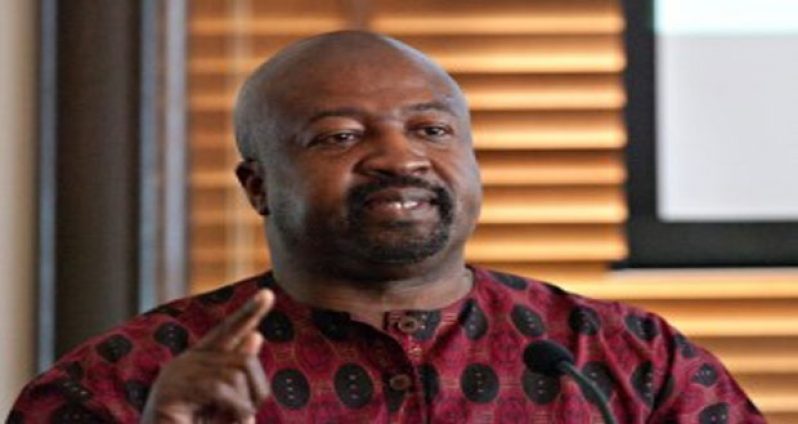–in the current political environment
IN A comment to one of the daily newspapers this past week, I suggested that the government and the opposition PPP should together craft a national development plan to move our country forward. I took that position, knowing full well that it is an unpopular one among government supporters, particularly African Guyanese.
As I expected, there was a flurry of responses on social media, some of which questioned my sanity. I also received many private messages which disapproved of such a course.
Most of the opposition to my suggestion was premised on the alleged corruption during the PPP’s term in office. This is the very constituency that in 2011 and 2015 responded positively to a political platform that centered on the need for a Government of National Unity as a solution to our political deadlock.
The question was raised by the rank and file supporters about how, in the face of suspicions of corruption perpetrated under PPP’s watch, that unity would be actualised. The APNU and Coalition leaders responded that they would be prepared to deal only with the untainted members of the PPP. The message then was clear: Unity with the PPP was conditional on the outcome of a corruption probe.
Upon taking office, the Coalition threw out a line of possible reconciliation with the PPP, which was promptly rejected by the latter. The governing parties have not since pursued the matter with any urgency.
Now, one year later, after the promised forensic audits of several government agencies were done, there is more than a hint of impropriety during the PPP’s stint.
Some government supporters, including this writer, have been somewhat concerned that the government has not acted on the findings of the audits. The government has called for caution, while the PPP has anticipated government action by mounting an aggressive campaign of charges of racism and political witch-hunt against the government.
I have given the above account in order to drive home the point that it may not be possible to have a Government of National Unity that includes the PPP, if drastic action is taken against that party’s supporters and members for alleged corruption.
This is a serious dilemma which the political class faces, and which may turn out to be another barrier to realising the kind of political atmosphere that is needed for reconciliation, and a joint national community.
It is hard to imagine the PPP wanting to join a government that facilitates the prosecution of its members and supporters. It is equally hard to envisage government supporters, in the absence of action against those exposed by the forensic audits, giving their blessings to a government that includes the PPP.
This is where I think the flow of post-2015 has taken us. I am a firm believer in a Government of National Unity as a starting point for ethnic and political reconciliation; I don’t see how we can arrive at a sense of togetherness outside of a political solution.
Social Cohesion is empty if it is not premised on a promise of political and economic security for all our groups. But I am equally firm on the position that we should not sacrifice this moment of anti-corruption ferment at the altar of political expediency. For me, this is not about simply punishing bad people; it is about confronting a scourge that has been with us since independence.
As I have argued before, there is a relationship between official corruption and economic underdevelopment, and national pride.
In the end, I think that, for now, we will have to live without a Government of National Unity. This then leaves us at the mercy of a one-sided government, which, over the last six decades, has not been good for Guyana.
The present government has the benefit of being a multi-party coalition, even if it does not always appear that way. Hopefully, its plural nature would serve as a check on the inevitable temptation to over-reach.
In the meantime, we continue the pretense of “one nation”, knowing fully well that, in actuality, we function as a fractured nation. This condition stalls economic advance, as those who sit in government must endure economic sabotage, and those who sit outside must live with being left out of economic decision-making.
And the masses of people must endure their hardships, yet mute their cries of frustration out of political considerations.
AFTER ONE YEAR
One year after, there is still serious work to be done to right the wrongs, and straighten some crooked ways. There is still discrimination in procurement; the same preferred boys who got the contracts back then are assured of the contracts today.
Whether it’s in waste management, construction, provision of health care, or supplying drugs, small contractors are still left out in the cold. In some instances, the mechanisms for appeal seem to be out of reach. Contractors who messed up projects in the past are still being granted contracts. Even if we are now playing by the rules, they are unfair rules. There is still not a representative national cricket board; elections have not been held since 2009. A small favoured clique seems untouchable and unstoppable. The cries of the discriminated get no official attention. If we champion the cause of local government elections, how can we live without free and fair elections in cricket?
Poor people in some communities and in some government ministries and agencies are still being kicked around by PPP functionaries. One functionary in a high position in one ministry reportedly sent back funds earmarked for community development, rather than make them available to poor people who had applied.
More of Dr. Hinds’ writings and commentaries can be found on his YouTube Channel Hinds’ Sight: Dr. David Hinds’ Guyana-Caribbean Politics and on his website www.guyanacaribbeanpolitics.com. Send comments to dhinds6106@aol.com



.jpg)








